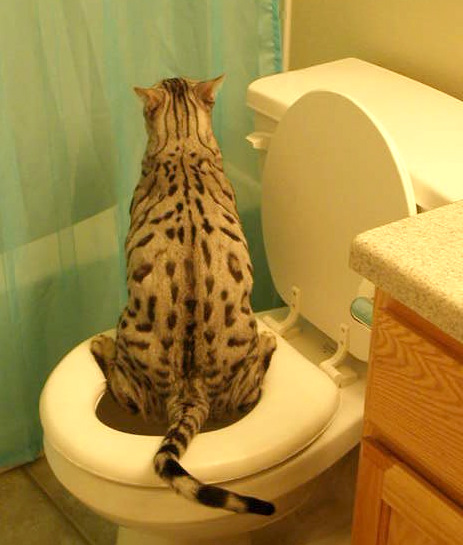Reasons You Should Never Flush Cat Poop Down Your Toilet - Crucial Information
Reasons You Should Never Flush Cat Poop Down Your Toilet - Crucial Information
Blog Article
Right here below you can get a lot of outstanding ideas with regards to Don’t flush cat feces down the toilet.
:max_bytes(150000):strip_icc()/0S1A1090-49a8e2c66f8e41d6901f2559787a7f24.jpg)
Intro
As pet cat owners, it's important to be mindful of exactly how we deal with our feline friends' waste. While it may appear convenient to purge cat poop down the commode, this practice can have damaging effects for both the atmosphere and human health.
Ecological Impact
Flushing feline poop introduces dangerous microorganisms and bloodsuckers right into the supply of water, posturing a substantial danger to marine environments. These impurities can adversely impact aquatic life and concession water high quality.
Wellness Risks
In addition to ecological problems, purging cat waste can likewise posture health and wellness threats to humans. Feline feces might contain Toxoplasma gondii, a bloodsucker that can cause toxoplasmosis-- a possibly extreme illness, especially for expectant women and people with damaged immune systems.
Alternatives to Flushing
Fortunately, there are much safer and more responsible methods to get rid of feline poop. Consider the complying with choices:
1. Scoop and Dispose in Trash
One of the most common technique of dealing with feline poop is to scoop it into an eco-friendly bag and toss it in the trash. Be sure to utilize a dedicated trash scoop and take care of the waste quickly.
2. Usage Biodegradable Litter
Go with biodegradable cat litter made from materials such as corn or wheat. These clutters are environmentally friendly and can be safely dealt with in the trash.
3. Hide in the Yard
If you have a backyard, consider burying cat waste in a designated area away from vegetable yards and water resources. Make sure to dig deep adequate to avoid contamination of groundwater.
4. Install a Pet Waste Disposal System
Purchase a family pet waste disposal system particularly made for feline waste. These systems utilize enzymes to break down the waste, lowering odor and ecological influence.
Conclusion
Responsible pet ownership extends past giving food and shelter-- it likewise includes proper waste monitoring. By refraining from flushing feline poop down the commode and opting for alternate disposal approaches, we can decrease our environmental impact and shield human health.
Why You Should Never Flush Cat Poop Down the Toilet
A rose by any other name might smell as sweet, but not all poop is created equal. Toilets, and our sewage systems, are designed for human excrement, not animal waste. It might seem like it couldn’t hurt to toss cat feces into the loo, but it’s not a good idea to flush cat poop in the toilet.
First and foremost, assuming your cat uses a litter box, any waste is going to have litter on it. And even the smallest amount of litter can wreak havoc on plumbing.
Over time, small amounts build up, filling up your septic system. Most litter sold today is clumping; it is made from a type of clay that hardens when it gets wet. Ever tried to scrape old clumps from the bottom of a litter box? You know just how cement-hard it can get!
Now imagine just a small clump of that stuck in your pipes. A simple de-clogger like Drano isn’t going to cut it. And that means it’s going to cost you big time to fix it.
Parasitic Contamination
Believe it or not, your healthy kitty may be harboring a nasty parasite. Only cats excrete Toxoplasma in their feces. Yet it rarely causes serious health issues in the cats that are infected. Most people will be fine too if infected. Only pregnant women and people with compromised immune systems are at risk. (If you’ve ever heard how women who are expecting are excused from litter cleaning duty, Toxoplasma is why.)
But other animals may have a problem if infected with the parasite. And human water treatment systems aren’t designed to handle it. As a result, the systems don’t remove the parasite before discharging wastewater into local waterways. Fish, shellfish, and other marine life — otters in particular — are susceptible to toxoplasma. If exposed, most will end up with brain damage and many will die.
Depending on the species of fish, they may end up on someone’s fish hook and, ultimately on someone’s dinner plate. If that someone has a chronic illness, they’re at risk.
Skip the Toilet Training
We know there are folks out there who like to toilet train their cats. And we give them props, it takes a lot of work. But thanks to the toxoplasma, it’s not a good idea.

I found that post about Don’t flush cat feces down the toilet while doing research the internet. You should take the opportunity to distribute this blog posting if you liked it. Thanks for taking the time to read it.
Click Here Report this page